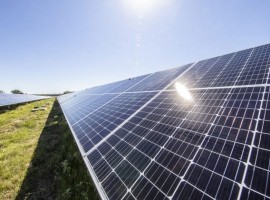Egypt is one of the countries that will be significantly affected by climate change on several levels, including water scarcity, rising sea levels, and weather changes or heat waves. Therefore, it is crucial for the country to contribute to climate action and sustainable development plans adopted across the globe. Egypt is accelerating its decarbonization pace and working on energy diversification as the country is committed to its ‘Sustainable Development Strategy: Egypt Vision 2030’ and ‘Integrated Sustainable Energy Strategy 2035’, which were launched in 2015.
Decarbonizing Natural Gas
As a part of its sustainable development plans, Egypt works on various methods to ensure a brighter future. One of the efforts exerted includes decarbonizing natural gas. Several companies are interested in decarbonizing Egyptian natural gas. During the Egypt Petroleum Show (EGYPS 2022), which was held in February 2022, Egypt signed several memoranda of understanding (MoUs) for various projects related to decarbonization, especially the usage of hydrogen and low-carbon energy, studying carbon management, low-carbon hydrogen derivatives, such as ammonia, as well as oil and gas emissions sources. The companies involved in these MoUs included Shell, DNV, Schlumberger, and Worley.
Moreover, in the first half of October 2022, Egypt agreed with WIntershall Dea to explore carbon capture, storage, and utilization (CCUS) opportunities. Furthermore, Wintershall Dea signed a letter of intent with the Egyptian Natural Gas Holding Company (EGAS) to significantly reduce operational greenhouse gas emissions at the Disouq concession.
Flare Gas
On the other hand, Egypt is concerned about the wasted gas in the air. Egypt has been keen to work on its flare gas to ensure a safer environment. In October the Petroleum Safety & Environmental Services Company (Petrosafe), in cooperation with Baker Hughes, held a seminar titled “Integrated Solutions for Flare Gas Management and Monitoring the Flow Rate of Greenhouse Gases”, which discussed a flare gas project.
The flare gas management and recovery project comes to implement strategic programs to develop and modernize the petroleum sector with the aim of raising the efficiency of the work of refineries and supporting the efficiency of energy use. The project is set to achieve a positive impact on the environmental and economic levels by reducing the emission of gases in the various petroleum sites.
Thanks to the projects implemented to capture gas flare, “Flaring is lower, by 26% compared to 2016,” according to the study entitled ‘Leadership on methane in Egypt: Recent successes and future opportunities in the lead-up to COP27’ prepared by Capterio and the Clean Air Task Force. “Operators in Egypt have recently demonstrated that flare capture projects are commercially attractive at the scale of 10, 30, 50, and 150 million cubic meters per year,” the study said.
However, Egypt still has space for development. By attracting more investments to the flare gas capturing plans, Egypt can increase projects. “Egypt’s flaring, venting and leaking could be further reduced, annually adding up to 3.7 BCM of gas, up to $7 billion per year to the economy, whilst reducing emissions by up to 88 million CO2-equivalent tons,” Capterio’s study said.
Green and Clean Energy
Egypt has been working on attracting investors to renewable energy generation. The country is keen to increase its generated energy from renewable sources, such as solar, wind, and hydro-power, as well as nuclear sources by 2035. By the targeted year, Egypt is set to produce 42% of its electricity from renewables, and 3% from nuclear power once the Dabaa plant is complete, according to an article by Seda Duygu Sever-Mehmetoglu from Hamad bin Khalifa University.
The Egyptian government is making several incentives to attract investments in renewables. “One notable fiscal policy tool is taxing, with the capital components of renewable energy being subject to a value-added tax (VAT) of only 5% instead of 14% according to the VAT law,” Professor, Dalia M. Ibrahiem, said in an article entitled ‘Renewable Energy in Egypt: Needs and Priorities’.
With these efforts, Egypt will successfully develop its electricity mix and decrease its emissions. Through decarbonizing its natural gas, capturing its flare gas, boosting its hydrogen production, and enhancing its renewable energy and nuclear industries. Accordingly, Egypt can be a significant contributor to the world’s climate action and sustainable development paths.








